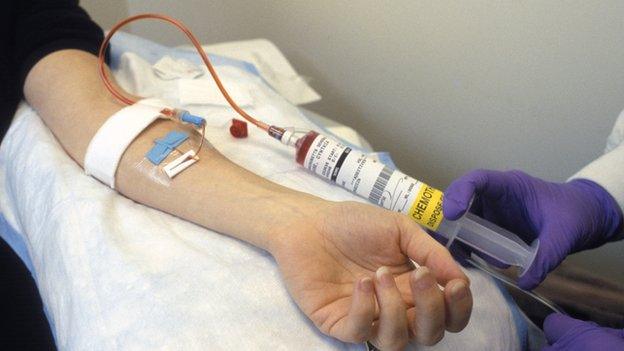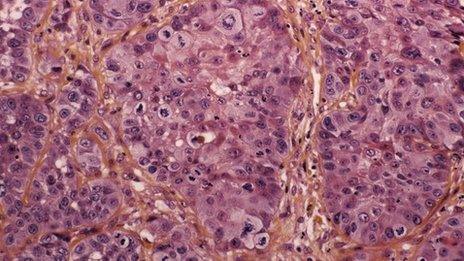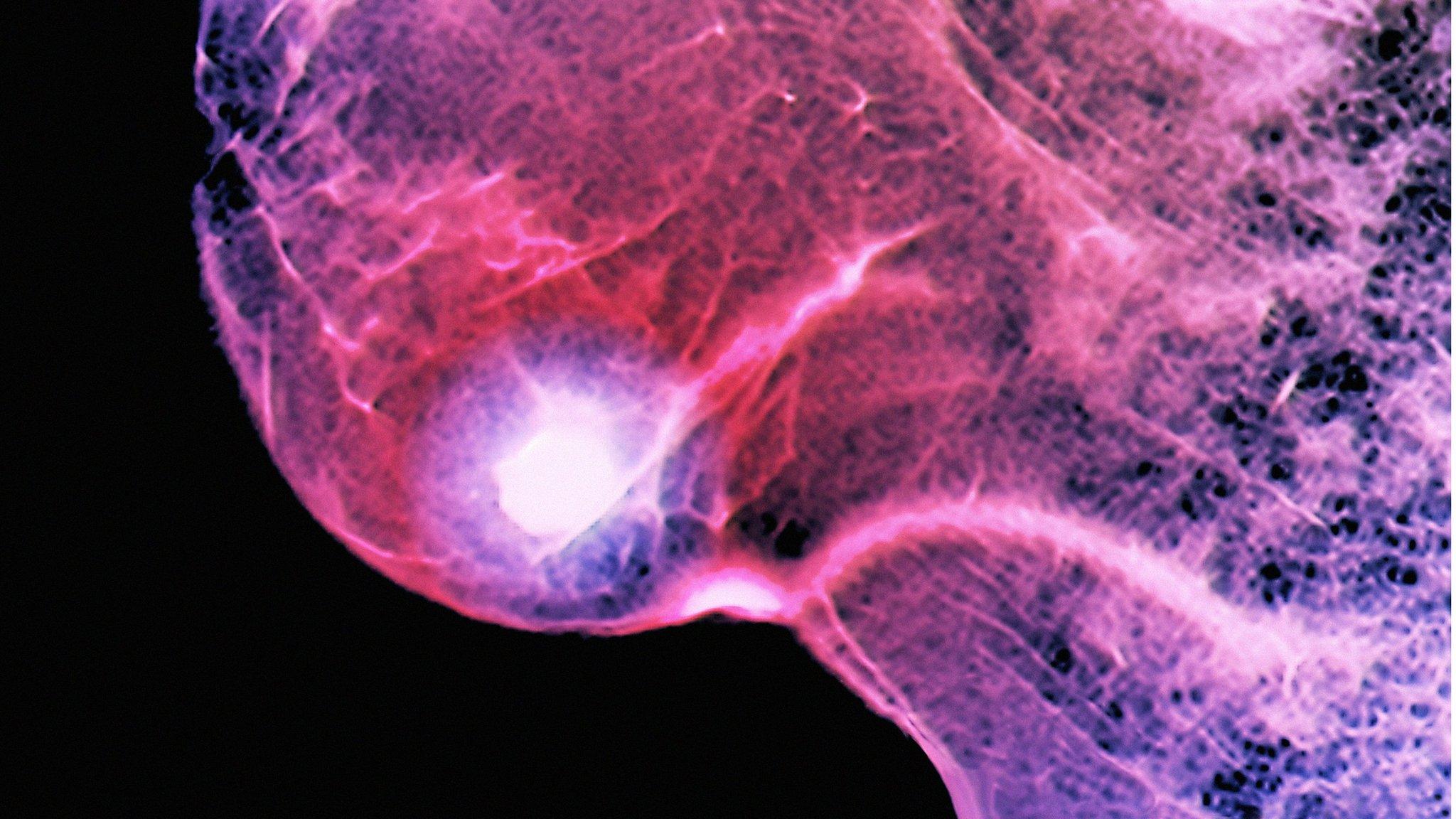Aspirin may stop deafness caused by chemotherapy
- Published

A trial will be launched at Velindre Hospital to see if high doses of the drug can prevent permanent loss
Aspirin could save the hearing of cancer patients receiving chemotherapy, scientists in Cardiff hope.
A trial will be launched at the city's Velindre Hospital to see if high doses of the drug can prevent permanent loss.
Conditions ranging from tinnitus to deafness are a common side effect for patients given the chemotherapy drug cisplatin.
The trial, called Coast, has recruited 88 adults prescribed cisplatin in Cardiff and other UK hospitals.
It is used to treat testicular cancer, germ cell cancer, head and neck cancer, bladder cancer, cervical cancer, non-small cell lung cancer and some types of children's cancer.
'Shock it was cancer'
Father-of-four Andrew Millington, 66, was given cisplatin after a tumour was found at the base of his tongue.
"I had a persistent sore throat and earache, and I went to see my GP last spring," he said.
"I was referred to a consultant and had an MRI scan. It was a shock to be told it was cancer but... it was generally curable, which was such a relief to hear. I was offered cisplatin and, after hearing about the possible side effects, I was more than happy to take part in the Coast trial."
Around 18,500 cancer patients receive cisplatin every year and around half suffer some form of permanent hearing loss.
Dr John Chester from Cardiff University spoke to Mai Davies on BBC Radio Wales
Ahead of the trial's launch on Thursday, professor Emma King, chief investigator and Cancer Research UK surgeon at the University of Southampton, said: "Aspirin can have serious side effects, including internal bleeding, so it's important to stress that aspirin is not suitable for all cancer patients.
"To help prevent these problems we'll be giving patients specially coated aspirin tablets, that only release the drug once it reaches the small intestine, and also using another drug that reduces digestive juices, to prevent bleeding in the stomach.
"If this trial is successful, then a larger trial will follow within two years that could potentially see aspirin become a routine part of cisplatin treatment for many thousands of cancer patients."

Conditions ranging from tinnitus to deafness are a common side effect for patients given cisplatin
- Published7 December 2010
- Published7 December 2010
- Published15 November 2013

- Published26 September 2013
